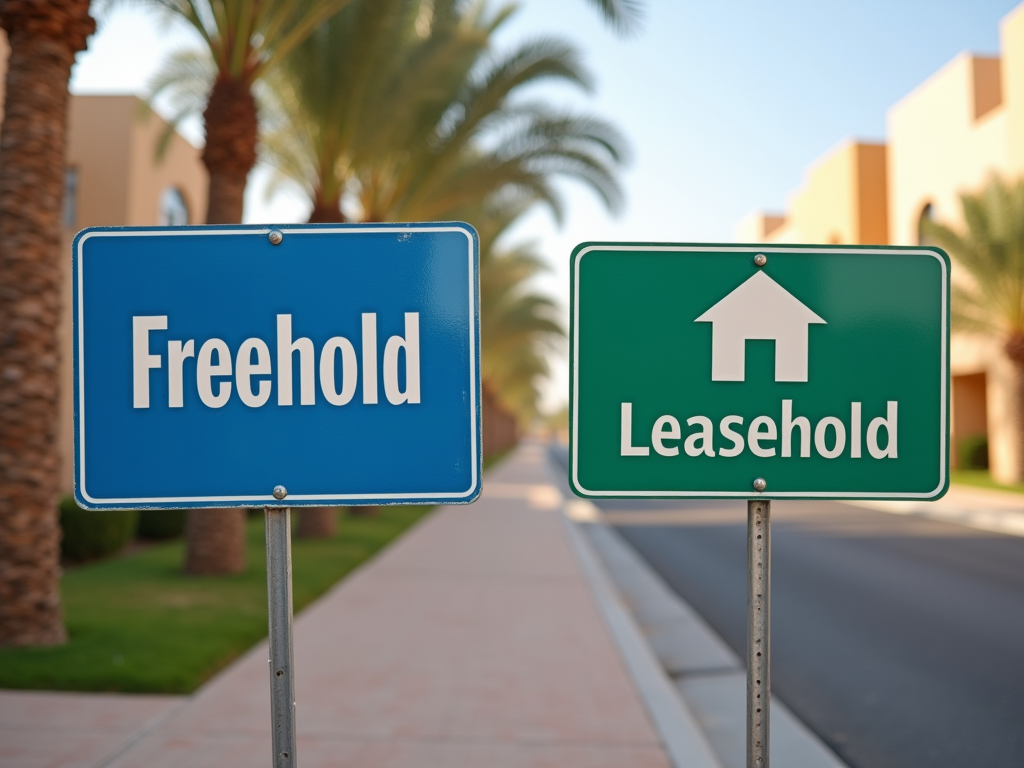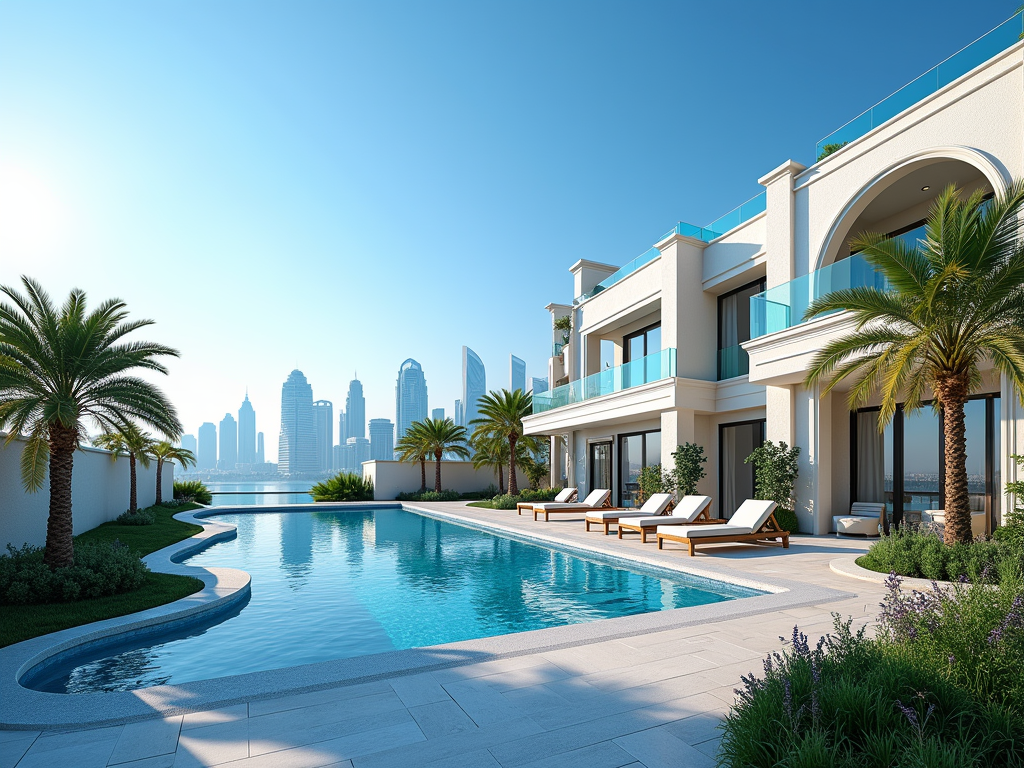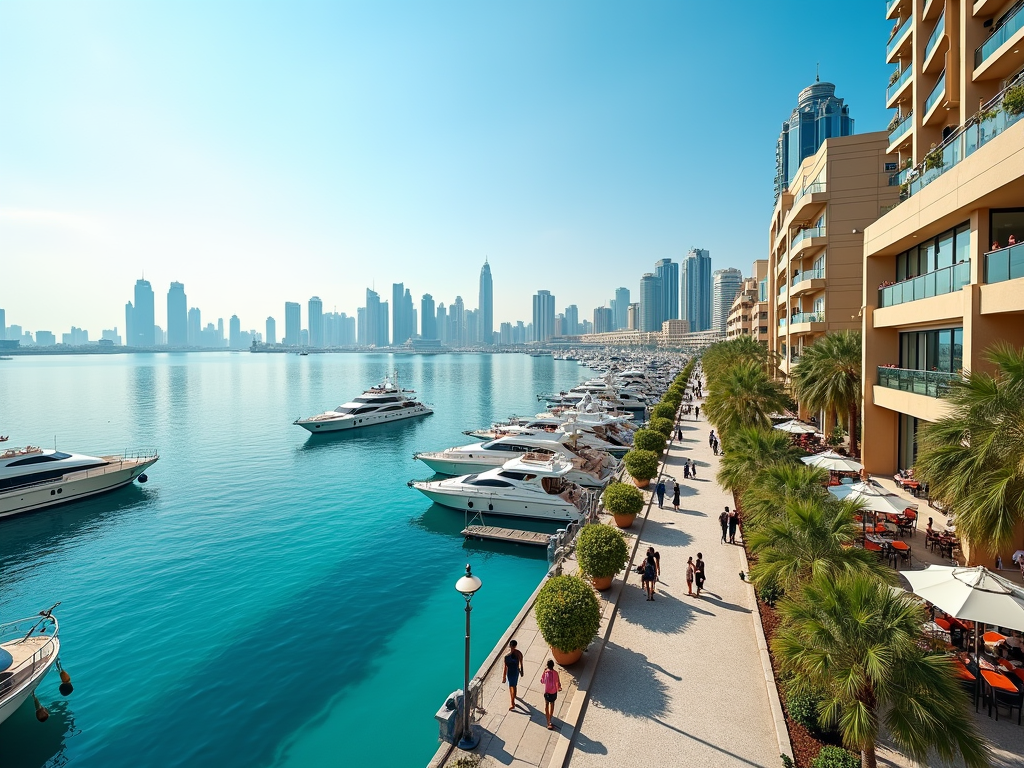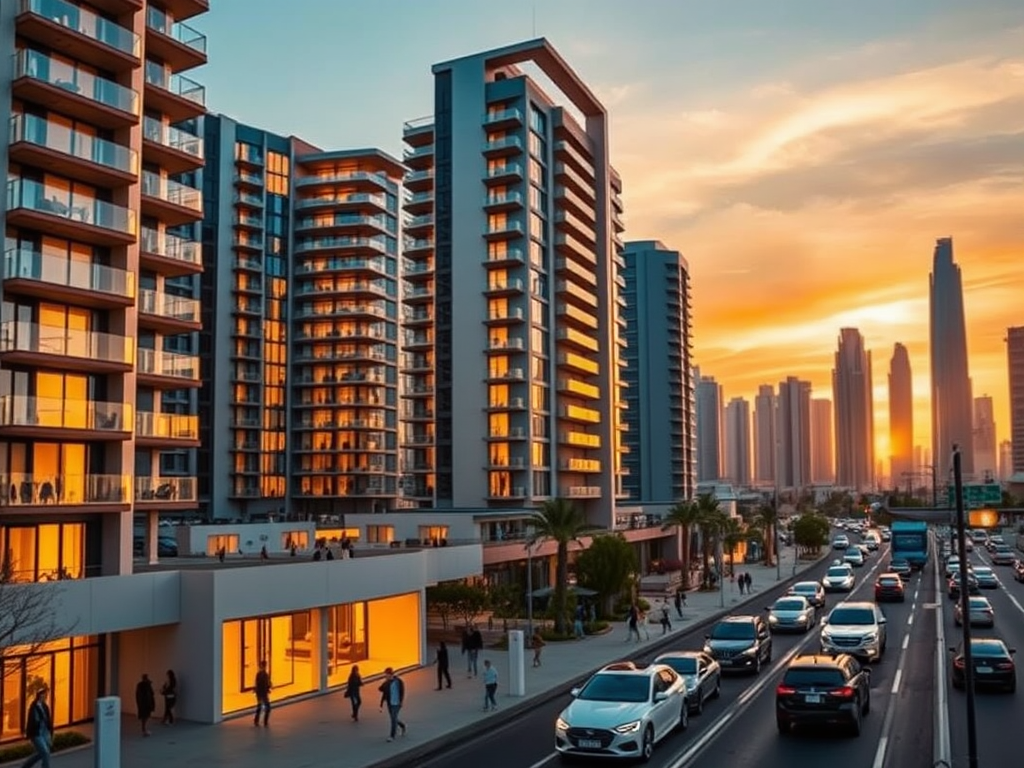Understanding the distinction between freehold and leasehold properties in Dubai is crucial for potential investors or homebuyers. In essence, freehold properties grant the owner full ownership of the property and the land on which it stands, while leasehold properties provide ownership of the property for a predetermined time, typically 99 years, with land lease obligations. This article delves into the key differences between these two property types, helping you make informed decisions when exploring real estate in Dubai.
What is Freehold Property?

Freehold properties represent a significant asset in Dubai’s real estate market. As the owner of a freehold property, you have absolute ownership rights over the property and the land. This type of ownership is prevalent in designated areas called freehold zones where foreign nationals can buy properties. Investors enjoy several benefits, including the ability to sell, lease, or modify the property without the need for landlord approval. Additionally, owning a freehold property can offer long-term security for homeowners and potentially higher capital appreciation. For individuals looking at a permanent residence, freehold ownership is often the preferred choice, providing not only stability but also the freedom to invest in renovations or improvements as desired.
Understanding Leasehold Property

Leasehold properties, in contrast, offer a different ownership dynamic. Under a leasehold agreement, you own the property itself but not the land it occupies. This can be for a fixed term, often up to 99 years, after which ownership reverts back to the landowner. Leasehold properties are a common choice in Dubai, especially in areas that are not designated as freehold zones. Buyers of leaseholds may experience lower upfront costs compared to freeholds, which can be appealing for investment purposes. However, it’s essential to consider the limitations associated with leasehold properties, such as restrictions on alterations and potential renewal costs once the lease term is nearing expiration. Moreover, governing laws and restrictions can vary, so it’s vital to understand the implications of leasing land within Dubai.
When contemplating property investments in Dubai, several critical differences between freehold and leasehold properties should be taken into account:
- Ownership Duration: Freehold properties offer permanent ownership, while leasehold properties typically have a fixed term.
- Land Ownership: Freeholders own both the property and the land; leaseholders own only the property.
- Potential Returns: Freehold properties may yield higher long-term capital appreciation compared to leasehold properties.
- Investment Flexibility: Freehold owners can make modifications and arrange renovations more freely than leaseholders.
- Costs and Fees: Freehold properties generally incur different costs, including maintenance and management, whereas leaseholders might have lower initial expenses but should consider renewal and management fees.
Advantages and Disadvantages of Each Type
When deciding between freehold and leasehold properties in Dubai, examining the advantages and disadvantages can aid your choice:
- Advantages of Freehold:
- Complete ownership and control over the property and land.
- Greater potential for capital gains and property value increases.
- No restrictions on property modifications.
- Disadvantages of Freehold:
- Higher initial purchase costs.
- May involve significant maintenance responsibilities.
- Advantages of Leasehold:
- Lower purchase prices compared to freehold properties.
- Suitable for clients looking for temporary or shorter-term investments.
- Disadvantages of Leasehold:
- Limited control over the property, with permission required for modifications.
- Ownership reverts to the landlord after the term, potentially leading to investment loss.
Conclusion
When choosing between freehold and leasehold properties in Dubai, it is essential to consider your investment goals, financial capacity, and lifestyle preferences. Freehold properties offer permanence and control, making them ideal for those seeking long-term residency or investment. Conversely, leasehold properties can be more budget-friendly and provide opportunities within non-freehold zones. Understanding these differences will empower potential buyers or investors to make informed decisions that align with their financial aspirations and living needs in the dynamic Dubai real estate market.
Frequently Asked Questions
1. Can foreigners buy freehold properties in Dubai?
Yes, foreign nationals can purchase freehold properties in designated freehold areas in Dubai, allowing full ownership rights.
2. What happens to a leasehold property after the lease expires?
Once the lease term expires, ownership typically reverts to the landowner, unless the lease is renewed under new terms.
3. Are there property taxes for freehold and leasehold properties in Dubai?
Dubai does not impose annual property taxes on either freehold or leasehold properties, but a one-time registration fee applies during purchase.
4. Can leasehold properties appreciate in value?
Yes, leasehold properties can appreciate in value, but the potential may be less than that of freehold properties due to the limited ownership duration.
5. Is financing available for both freehold and leasehold properties in Dubai?
Yes, financing options are available for both types of properties, but terms may vary based on the type and ownership status.



